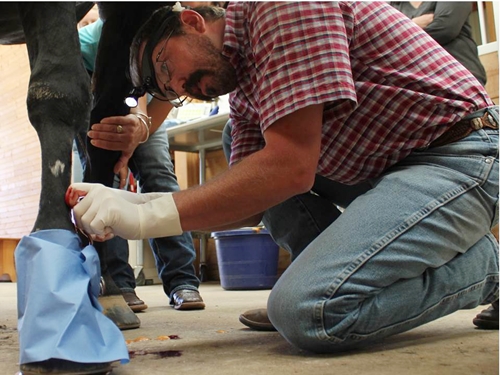 Colorado Equine Veterinary Services is equipped to perform various types of surgeries. These surgeries can be performed at the clinic or through a field service call. CEVS surgeries include:
Colorado Equine Veterinary Services is equipped to perform various types of surgeries. These surgeries can be performed at the clinic or through a field service call. CEVS surgeries include:
- Equine Castration
- Cryptorchid
- Hernia Repair
- Wound and Laceration Repair
- Urethral Extensions
Equine Castration
General Considerations for Castration
- Indications
- decreases sexual behavior
- decreases aggression tendencies
- limits stallion reproductive pool
- removal of testicular tumors
- removal of damaged testicular tissue
- castration in combination with hernia repair
- When to perform the castration
- when it is suited to your establishment
- often 1-2yrs of age but occasionally as early as 6 months.
- when the sexual behavior requires additional management and/or becomes aggressive
- when the desired physical male characteristics are achieved
- when the future breeding potential of the horse is determined
- Prior to castration have your veterinarian
- ensure both testicles are descended
- check for presence of a hernia
- Ensure that your horse is up to date on tetanus vaccination in preparation for this minor surgical procedure.
- Castration procedure can be completed in lateral recumbency or standing position.
- Cryptorchids (testicle retained in the abdomen) are usually castrated under general anesthesia using laparoscopic, abdominal or a flank incision approach.
